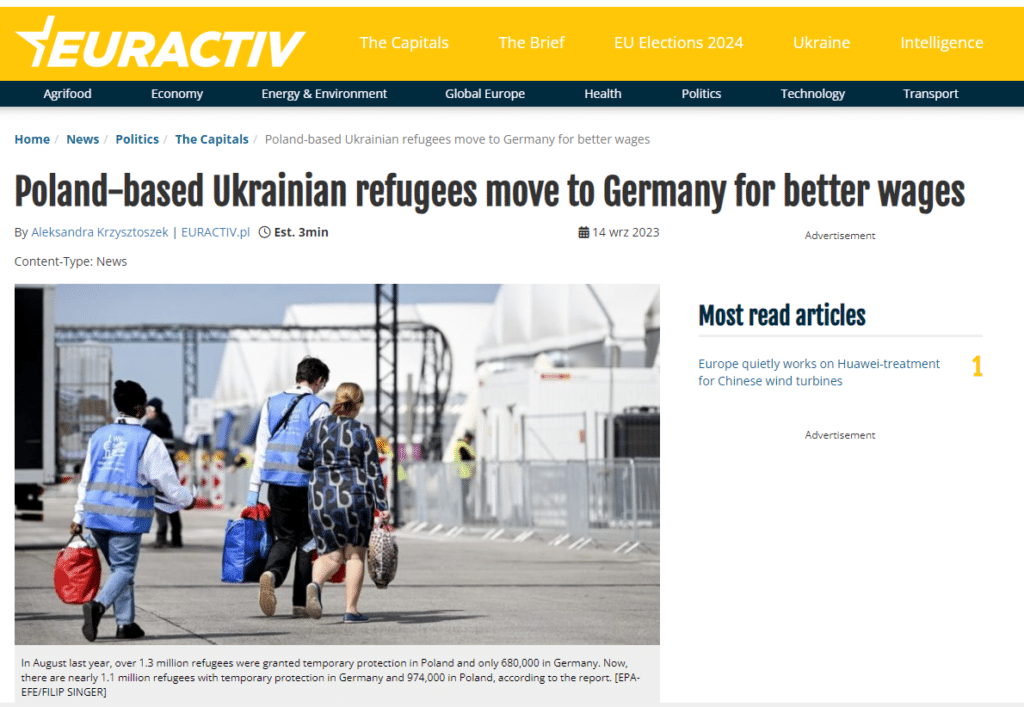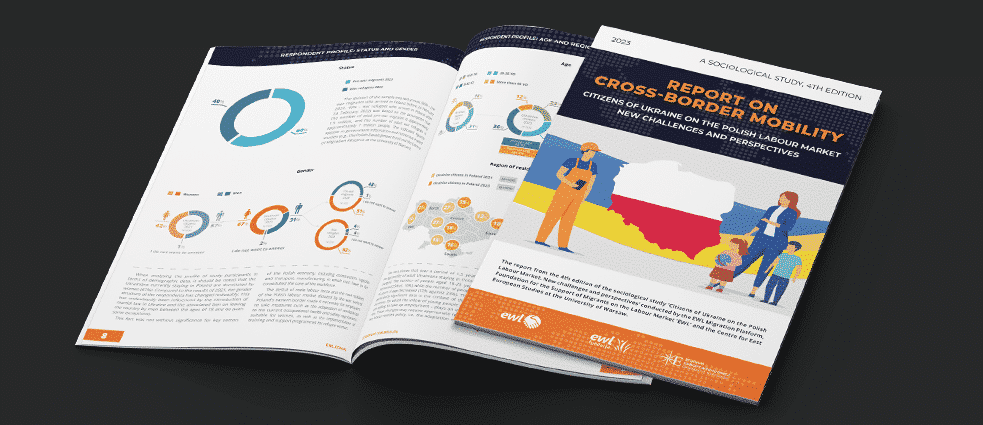Germany has seen more Ukrainian refugees than Poland since late 2022, with most refugees moving West for better welfare standards and job opportunities, a new report by the EWL Migration Platform and the Centre for East European Studies (SEW) at the University of Warsaw reads.
In August last year, over 1.3 million refugees were granted temporary protection in Poland and only 680,000 in Germany. Now, there are nearly 1.1 million refugees with temporary protection in Germany and 974,000 in Poland, according to the report.
“Poland has lost its role as the first-choice country (for Ukrainian refugees), and has been replaced by Germany,” EWL PR ManagerAnatoliy Zymnin said at the report’s presentation.
“It is a matter of freedom of choice. Some people do stay, others go further,” added Jan Malicki, Director of SEW.
According to the survey, the main motivations for Ukrainian refugees to move to Germany include family or friends, higher and more comprehensive social benefits, and better living standards and job opportunities.
Ukrainians also cited better healthcare, education and child protection, a lack of knowledge of Polish, and Germany being perceived as a safer country, with Poland being too close to war-torn Ukraine.
Germany is the more attractive country regarding wages, with wage opportunities being four times higher in Germany than in Poland, Michalina Sielewicz, International Development Director at EWL, said about the study’s results.
She explained that Germany used to be a country where it was quite difficult for foreign workers. Only in recent years has it opened up its labour market, and now the barriers to entry are much lower, which benefits Ukrainian workers.
More importantly, over half of the 400 refugees who had moved from Poland to Germany in recent months who took the survey said they are integrating into German society through language courses, which are obligatory on the job market.
The study’s authors believe that Poland’s failure to motivate Ukrainian workers to learn Polish was a missed opportunity.
While in Poland, about 68% said they mainly used Ukrainian at work, they confirmed that knowing or learning the German language is a precondition for future employees.
Zymnin also pointed to a slight change in Polish people’s attitudes towards Ukrainian refugees, which was also reflected in the study.
While many Ukrainians said the positive attitude of Poles towards Ukrainians was a strong motivation for them to migrate there, 16% of respondents now say they feel more welcome in Germany, he said.





